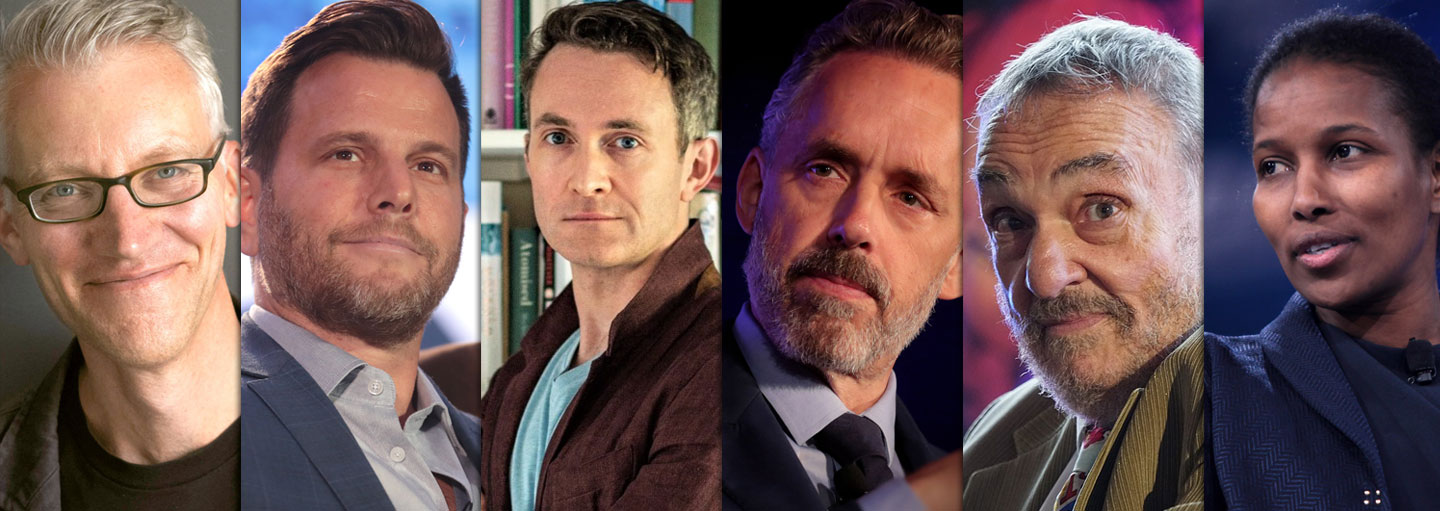The Australian journalist Greg Sheridan has quipped that these days, “the academic fashion is to attack Western civilisation, not study it.”
With historic statues being trashed and toppled around the western world, and accusations of systemic racism being levelled against the fairest societies that history has produced, Sheridan couldn’t be more right.
Sadly, those trying to erase our history seem unaware that the ideals they claim to stand for—like equality, human dignity, science and human rights—arose uniquely in the West. Not only that—these values owe much of their existence to Christianity.
Over the last decade, there has been a flood of scholarly publications that highlight the Christian roots of Western Civilisation. Christian academics like Vishal Mangalwadi, Rodney Stark, Larry Siedentop and Nick Spencer have written prolifically on this topic.
But there are also many atheists and skeptics who credit the West’s successes to the Christian faith. The author Tom Holland, with his recent book Dominion: The Making of the Western Mind (2019), is one of them.
The ancient world is a familiar place to Holland, who has spent the better part of fifteen years studying and writing about it. As an atheist, Holland had assumed that cultures like ancient Rome were the wellspring of his western values. But the more he examined these societies with all their vice and cruelty, the more alien they felt to him.
Take, for example, the emperor Commodus (AD 161-192). For a gladiatorial contest, Commodus once had all those with disabilities rounded up from the streets of Rome and tied together in the shape of a human. Entering the Colosseum, Commodus clubbed them to death before cheering crowds, proudly announcing that he had ‘slain a giant’.
Or consider Rome’s sexual ethics. Men had immense sexual freedom, while a woman who was unfaithful to her husband could be divorced in a heartbeat or killed with impunity. Sexual relationships between adult men and prepubescent boys were acceptable and even idealised.
According to Holland, “Sex in Rome was above all an exercise of power. As captured cities were to the swords of the legions, so the bodies of those used sexually… were to the Roman man. To be penetrated, male or female, was to be branded as inferior: to be marked as womanish, barbarian, servile.”
Realising that his own values contrasted sharply with those of the classical world, Tom Holland was eager to discover what had shaped him. The result of that fifteen-year search was his aforementioned book, Dominion, which he has summarised like this:
“I have come to the conclusion that in almost all the essentials, myself, my friends, the society in which I live—the whole of the West—is so saturated in Christian assumptions, it is almost impossible to remove ourselves from them.”
Though he is still an atheist, Holland has written, “In my morals and ethics, I have learned to accept that I am not Greek or Roman at all, but thoroughly and proudly Christian.”
But Tom Holland is not the only ‘unbeliever’ to make such a claim. In recent years, there has been a growing chorus of non-Christian voices echoing this provocative theme.
British journalist Douglas Murray (1979-) has declared that “you cannot take Christianity out of the West and have anything that’s recognisably the West.” Murray, an atheist—and who happens to be gay—speaks with admiration of Christianity and “the positive role it has played in building Western civilization.” He says that westerners “still dream Christian dreams” and he even goes as far to call himself, rather cheekily, a “Christian atheist.”
Dave Rubin (1976-) is another prominent gay personality who has come to this conclusion. An American talk show host and former comedian, Rubin long considered himself an atheist, but more recently his unbelief has begun to waver.
Of western societies, Rubin has said, “I see no way around it, as much as my enlightenment brain would like to. The eternal truths told for thousands of years through biblical stories are the rudder that keeps us moving forward during the storm.”
Dave Rubin credits his new perspective to Canadian psychologist Jordan Peterson (1962-), a highly sought-after speaker who has been labelled ‘the most influential public intellectual in the Western world’. Together, the two recently completed a world tour promoting Peterson’s latest book.
When asked if he believes in God, Peterson said, “I think the proper response to that is no—but I am afraid he might exist.” This uncertainty has not stopped Peterson from giving a series of Bible lectures that has attracted tens of millions of views online. What animates Peterson is his resolute belief that “the Bible is, for better or worse, the foundational document of western civilization.”
Likely you have heard of high-profile celebrities who swim against the tide of Hollywood to maintain their Christian faith. But there are far fewer from the silver screen who dare to defend Christianity from a standpoint of unbelief. The actor John Rhys-Davies (1944-), who starred in the Indiana Jones and Lord of the Rings trilogies, is one of this rare breed.
Rhys-Davies describes himself as a rationalist and a skeptic, but he has raised eyebrows by saying, “we seem to forget that Christian civilization has made the world a better place… we owe Christianity the greatest debt of thanks.”
In recent years, skeptical academics have also been weighing in on this question. Australian intellectual Chris Berg, another atheist, has said that “virtually all the secular ideas that non-believers value have Christian origins.”
Secular writer John Steinrucken claims that, “the glue that has held Western civilization together over the centuries is the Judeo-Christian tradition.”
French atheist philosopher Luc Ferry is convinced that our western belief in equality came directly from Christian teachings. Equality was “an unprecedented idea at the time,” he says, “and one to which our world owes its entire democratic inheritance.”
Most intriguing, perhaps, are those who grew up in different cultures but who speak with high praise about Christianity and its civilising power. Ayaan Hirsi Ali (1969-) is one such person. Ali was born in Somalia and raised as a Muslim.
She suffered FGM as a child, and in her teen years she was drawn to an increasingly fundamentalist brand of Islam. But Ali was also an avid reader of the Nancy Drew detective series, and she could not shake the independence and courage of the female lead character.
With lingering doubts about Islam and an impending forced marriage, Ali sought asylum in the Netherlands. Soon after, she watched from afar as al-Qaeda terrorists struck a diabolical blow against the civilisation that had offered her freedom.
Ali decided to re-examine Islam, and in 2002 she gave up her faith entirely, turning instead to atheism. She has since served in the Netherlands’ parliament, moved to the United States, and been an outspoken activist for freedom and feminism.
Despite her atheism, Ali regards the Christian church as one of the main institutions that has changed western hearts and minds for the better through the centuries. Controversially, she has even advocated for Christians to proselytise western Muslims in order to safeguard our civilisation from extremist Islam.
When so many people without a vested interest in Christianity speak up in defence of its civilising force on the world, we should pay attention.























